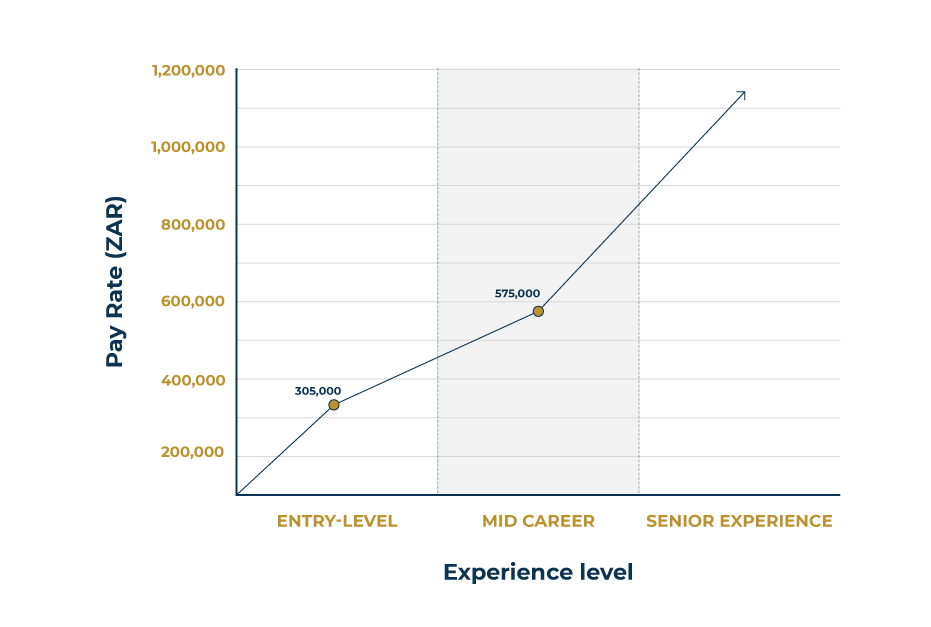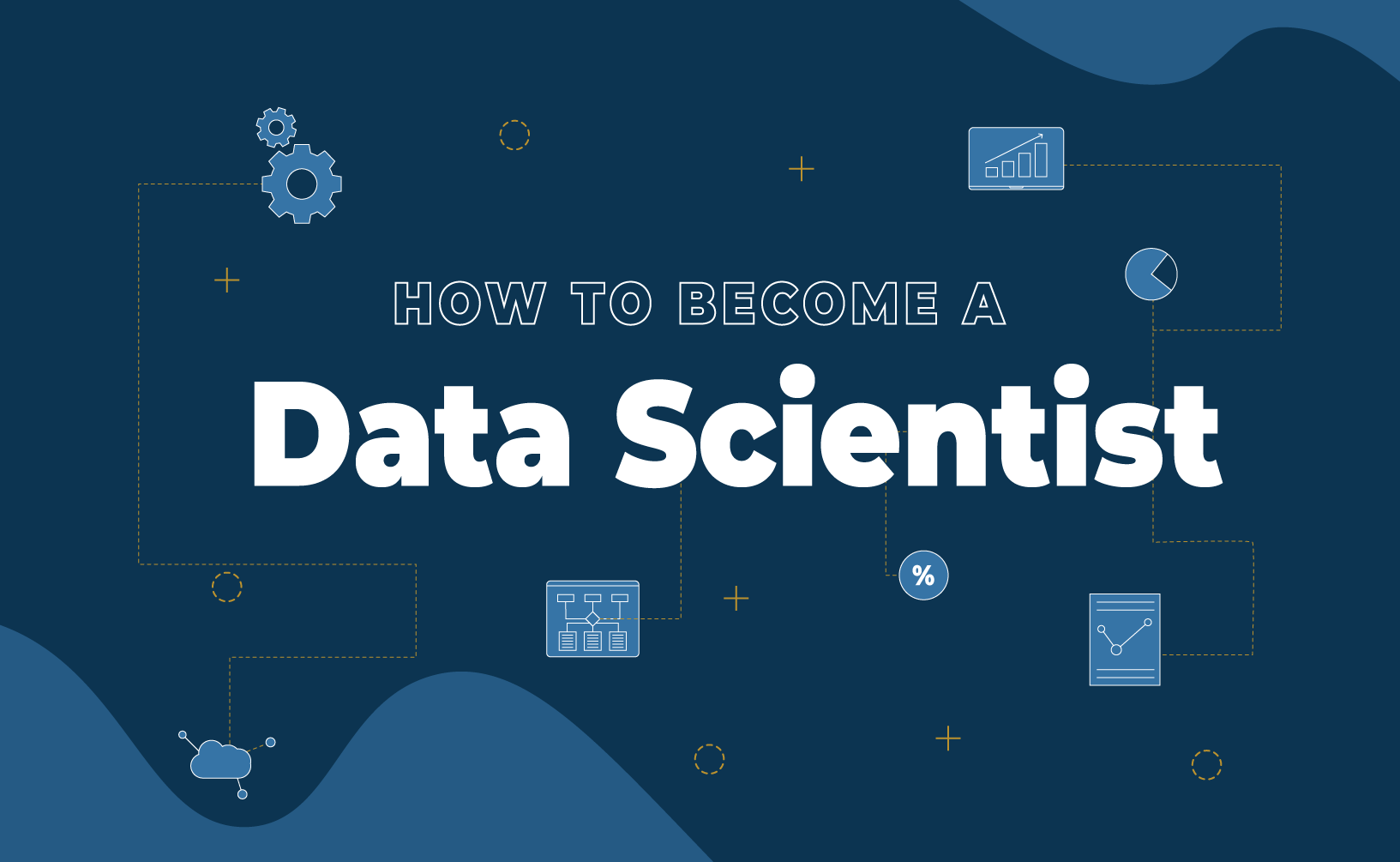Every day we create a mountain of data. Every time you use an app, send a message, watch a video, browse the internet, travel, or shop, you create information about yourself and the world you move in. To us, this is just unorganised, nonsensical records of what we ate, what we looked at, and what we brought; but to businesses, research centres, and policy makers, this information is a goldmine that’s the key to smoother operations, bigger breakthroughs, and higher profits.
A data scientist is the person digging into this mountain to find the gems that lead to better business operations, research breakthroughs, and profits. These professionals use a variety of tools and techniques to organise, manage, analyse, and understand Big Data and complex datasets; and their analyses and results are used to make business, research, or policy better.
In this blog, we’ll answer all your questions about data science, what data scientists do, what the career space is like, and how to start your career in this fast-growing industry.
What does a data scientist do?
A data scientist uses various tools, such as mathematics, statistics, and programming, to collate, manage, organise, and understand large quantities of data. They’ll analyse the data they collect, and present it in a way that’s accurate, useful, and comprehensible to their company, colleagues, and other people.
The average work tasks of a data scientist can be neatly summed up as follows:
- Collection – gathering the data they want to take a look at. This can be through experiments, research, surveys, or even taking pre-existing databases
- Organisation – much of the data that these researchers use has missing entries, incorrect data points, or needs to be changed somehow before they can interpret it. A data scientist will use the tools at his disposal to clean up and organise the data in a way that makes it easier to process and understand. ,
- Processing – this is the fun part. Data scientists will use software tools, statistics, maths, and analytical techniques to find interesting patterns and valuable insights in the data they’re looking at.
- Analysis & interpretation – complex statistical tables and spreadsheets full of numbers don’t mean much to a board of directors or room full lay people. Data scientists need to turn those hard numbers into comprehensible insights and visualisations that are digestible.
What skills does a data scientist need?
The work of a data scientist takes a level-headed, regimented person who has a love of numbers, among other crucial skills and attitudes. The best kinds of data scientists are problem solvers with a keen interest in discovering the source of problems, understanding them deeply, and solving them with innovative solutions and detailed insights.
A data scientist should be
- Organised – data scientists always need to clean up messy or incomplete data into formats that are easier to process, analyse, and understand
- Curious – at the top of a data scientist’s head should be inquisitiveness. A natural drive to discover why things are a certain way, what the causes of things are, and finding evidence-backed solutions are vital.
- Multi-skilled – Data scientists should be able to use a variety of tools, including statistics, mathematics, and data analysis and processing software, to do their work.
- Able to talk plainly – THe ability to understand what the data means and present this often complicated set of findings in a way that other people can understand is vital to a data scientist. The insights are not useful if they’re as confusing as the complex spreadsheet they came from.
- A learner – new tools and data processing techniques are coming out every year. A data scientist should always be open to new way who explores new avenues to understand new data in more meaningful ways
- Tech-savvy – Data processing can be complicated and time-consuming. A data scientist should know how best to use the programming, machine learning, and data processing tools available to them that make their job fast and efficient.
- Ethical – Data isn’t just about stats and numbers. There are human beings behind these datasets, and a good data scientist understands the ethics and morality of lawful collection and research practices.
What is the career path of a data scientist?
In general, to become a data scientist you would start out by slowly developing two vital skills: the ability to process and analyse data, and the ability to understand and present their findings. Data scientists typically start out their career by learning fundamental skills in programming languages and tools that are popular in data processing, such as Python, scikit-learn, NumPy, Matplotlib and pandas. This serves as the core skill for their daily work. They would also develop their skills in more advanced data processing techniques, such as data modeling, machine learning, and artificial intelligence.
Once you’ve learned to design data collection kits (such as surveys, polls, or other quantitative tools), you can follow one of three career paths: 
- Data scientist – a generalist who uses a combination of maths, statistics, and programming to organise and understand data, and then use those understandings to promote certain strategies.

- Data engineer – a computer scientist or software engineer whose primary specialisation is processing data. A data engineer is an expert in using programming and tech tools to organise, collate, interpret and present data.

- Data analyst – a data expert who focuses on interpretation, examines large collections of data, and writes reports about what it all means for their business or research team. They discover and communicate useful trends, patterns, or secrets in data to help people and business.
Of course, data scientists aren’t just restricted to these job titles. As we’ve written about in the past, the work that data scientists do is seen across hundreds of industries, and is vital almost everywhere because of the value it creates through its analysis and findings.
How much does a data scientist earn?
According to PayScale, the average annual salary of a data scientist is R407,905.
This pay level depends on various factors, such as the number of years you’ve spent on the job. Here’s what PayScale says the average data scientist’s pay looks like over the course of their career:

- Beginner pay: R178,000 – R483,000 per year
- Middle pay: R337,000 – R912,000 per year
- Senior pay: R304,000 – R1,000,000+ per year
Data science is a very promising career space to be in, with a lot of cross-industry applications and freedom to choose between careers because of the universal value of data science.
Are you interested in learning how to use data science, algorithms, and machine learning to unlock huge profits, improve your business, or fast-track groundbreaking research? Our Data Scientist bootcamp teaches you everything you need to know to get started on seeing, managing, and using data for a wide range of applications. Start your career in data science by signing up for our free trial here, or by chatting to one of our expert admissions consultants.


